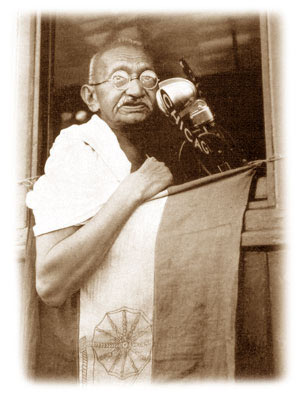Gandhi Journal Article-III (October 2015) :
Economic impact of Gandhi's models
By Prajakta Desai & Sunil Sonawane
Gandhi had an innate sympathy for the poor and deprived. This coupled with a direct observation of the predicament of the poor and the oppressed both in India and in South Africa led him to design an economic model that would alleviate the condition of the poor and the deprived. Gandhi believed that the high capitalist endeavors were at the root of all suffering. He believed that business without ethical considerations was fundamentally evil. This led to discrimination, oppression and exploitation. Gandhi also held that there is enough in this world to feed and clothe all. However, there is poverty and deprivation because one group of people thrives on the labor put in by others. Gandhi strongly believed in the ethics of hard work and that one is entitled to take from the system only as much as he is capable of producing. This according to Gandhi, was the only way to fight poverty.
READ FULL ARTICLE
